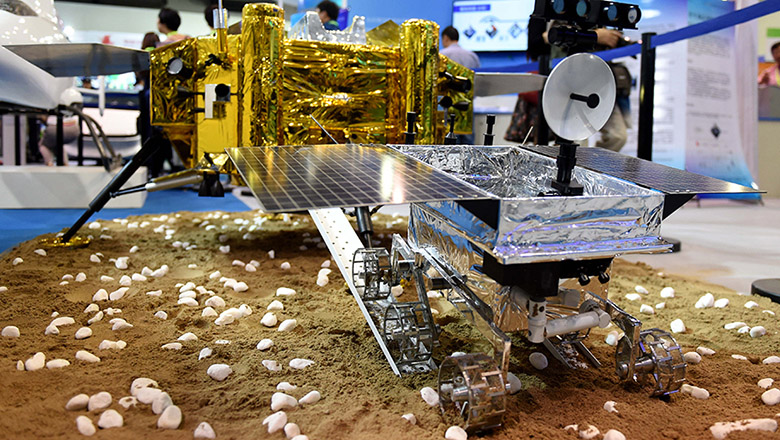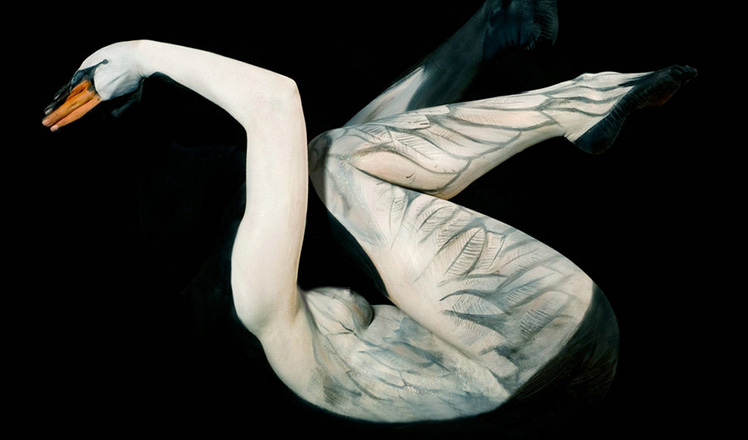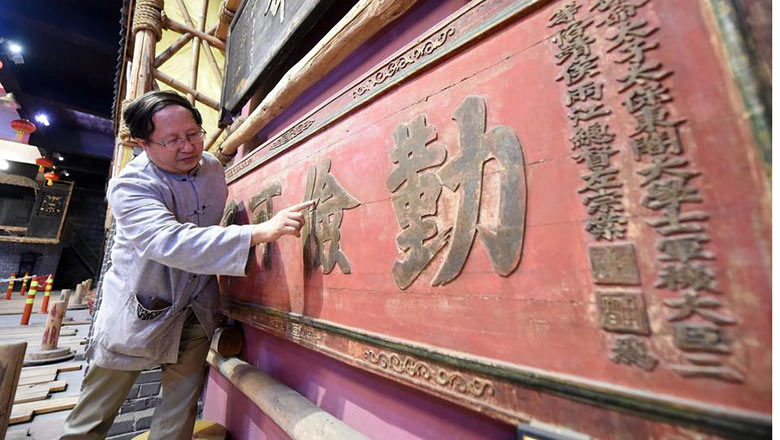Tsai's inaugural speech leaves crucial Straits questions unanswered
Updated: 2016-05-21 08:05
(China Daily)
|
||||||||
As anticipated, the new leader of Taiwan Tsai Ing-wen resorted to rhetorical ambiguity in her inauguration speech.
She harped on the same old string of neither crossing the mainland's red line, nor endorsing the 1992 Consensus on one China.
As she had done on multiple previous occasions, she pledged her administration will strive to preserve peace and stability in cross-Straits ties, as well as the existing mechanisms of dialogue and communication.
She wants all the benefits cross-Straits rapport has brought to Taiwan, but without acknowledging what made that possible.
Both the mainland and the previous administration in Taiwan led by Ma Ying-jeou agreed on the 1992 Consensus, which established the political bedrock for the good momentum in cross-Straits ties over the last eight years by highlighting the one China principle.
Yet, as evident before, this is not to Tsai's taste.
She said she respects the historical fact that the two sides talked and reached a number of agreements in 1992, and said her administration will handle cross-Straits ties in accordance with the "Constitution of the Republic of China", the "Regulations on Relations between People in the Taiwan and Mainland Areas" and other relevant laws.
Which on the surface at least sounds fine, because the "regulations" contain a mention of "national unification".
But this might be giving her the benefit of a benign interpretation.
Respecting the "historical fact" does not mean she respects the agreements themselves. Once again, she has not clarified her real attitude to the 1992 Consensus.
Nor does Tsai's vow to abide by the island's "Constitution" qualify as a tacit nod to one China, for it does not have a specific definition of the territory of the "Republic of China".
It should not be forgotten that Tsai was believed to be a main contributor to previous Taiwan leader Lee Teng-hui's definition of cross-Straits ties as "state-to-state". She has reportedly said in private that she would "continue to implement the 'two states' theory without mentioning it".
During her 2012 bid for the Taiwan leadership, Tsai again threw out the core slogan of "two states", saying "The Republic of China is Taiwan, Taiwan is the Republic of China". There has been no credible proof offered that her position has changed.
Tsai has even taken a step back from what her Democratic Progressive Party predecessor Chen Shui-bian said in his inaugural speech in 2000. As long as the mainland doesn't use force against Taiwan, Chen promised, he would not declare independence, change the name of "Republic of China", initiate the writing of the "two states" theory into the "Constitution", propose a referendum over unification or independence, or abolish "the Guidelines for National Unification and National Unification Council".
Despite Chen's capricious antics during his years in office, that speech did give some predictability to cross-Straits ties under a leader from the DPP.
Both sides of the Straits need predictability now. Tsai, too, has said she wants it. Speaking at the Center for Strategic and International Studies in Washington D.C. in June 2015, Tsai said she would strive to "build a consistent, predictable and sustainable cross-Straits relationship".
Her inaugural speech, however, was a sign that the relationship may be anything but predictable in the years to come. It left too many crucial questions unanswered.
Just as the Taiwan Affairs Office of the State Council in Beijing commented on Friday, what Tsai presented was an "unfinished answer sheet".
So we have heard what she had to say, we now have to see what she does.
In the long shadow of her and her party's denial of one China, Tsai has plenty to do to make sure the hard-earned goodwill between the two sides does not evaporate overnight and trigger more uncertainties.
Beijing didn't fly into a rage at her ambiguity. But Tsai should finish her answer sheet for the benefits of all people on both sides of the Straits - the earlier the better.
(China Daily 05/21/2016 page5)
- Russia to build first cruise liner in 60 years
- LinkedIn, Airbnb match refugees with jobs, disaster survivors with rooms
- Duterte 'willing to improve ties' with Beijing
- Canadian PM to introduce transgender rights bill
- Hillary Clinton says her husband not to serve in her cabinet
- New York cake show designs fool your eyes

 China Daily, celebrating 35 years
China Daily, celebrating 35 years
 Six things you may not know about Grain Buds
Six things you may not know about Grain Buds
 China Beijing International High-tech Expo
China Beijing International High-tech Expo
 Highlights at Google I/O developers conference
Highlights at Google I/O developers conference
 Nation celebrates International Museum Day
Nation celebrates International Museum Day
 Body brushwork creates vivid animals
Body brushwork creates vivid animals
 Can you still recognize these cities?
Can you still recognize these cities?
 A private museum owner's devotion to cultural protection
A private museum owner's devotion to cultural protection
Most Viewed
Editor's Picks

|

|

|

|

|

|
Today's Top News
Liang avoids jail in shooting death
China's finance minister addresses ratings downgrade
Duke alumni visit Chinese Embassy
Marriott unlikely to top Anbang offer for Starwood: Observers
Chinese biopharma debuts on Nasdaq
What ends Jeb Bush's White House hopes
Investigation for Nicolas's campaign
Will US-ASEAN meeting be good for region?
US Weekly

|

|







